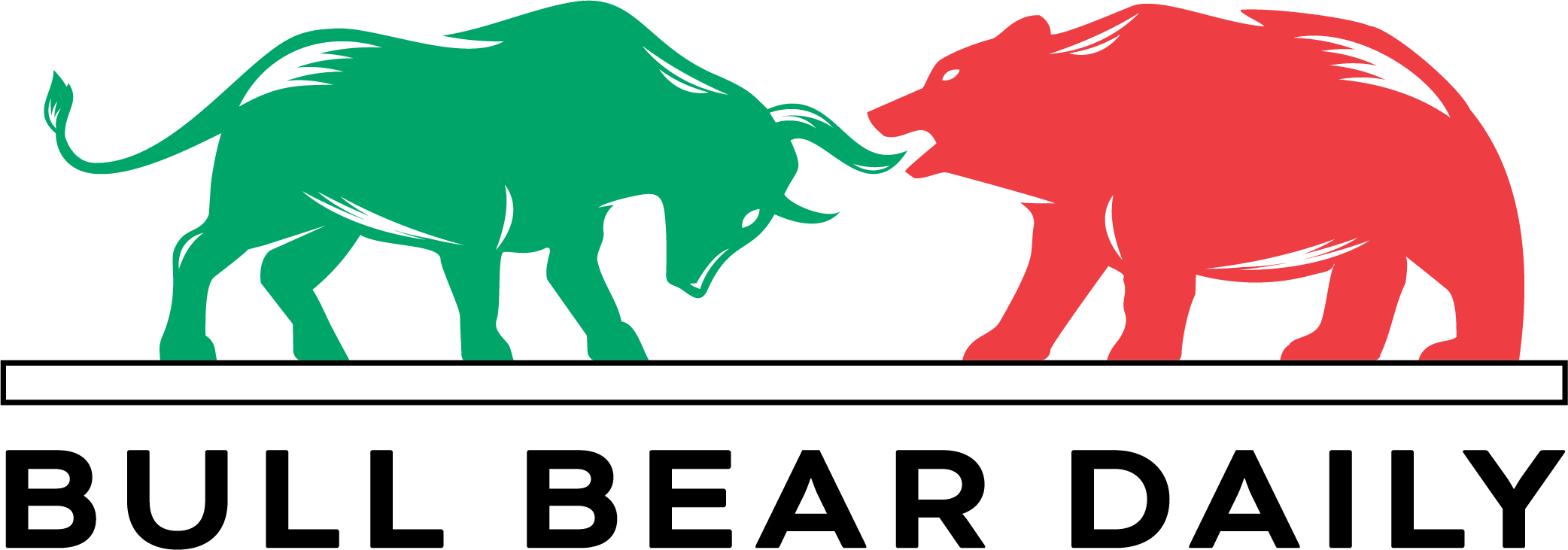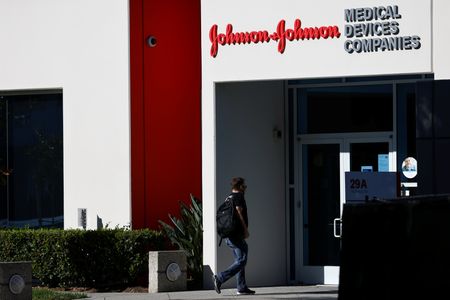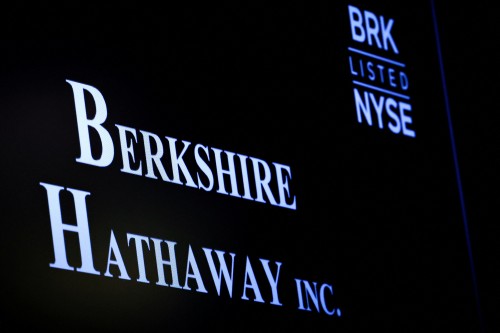By Bhanvi Satija and Patrick Wingrove
(Reuters) – Johnson & Johnson on Tuesday reported quarterly results just above Wall Street expectations, helped by strong sales of its blockbuster psoriasis drug Stelara, which is expected to face fresh U.S. competition from biosimilar versions next year.
Separately, the New Jersey-based drugmaker has tentatively agreed to pay about $700 million to settle an investigationbrought by more than 40 states into the marketing of its talc products, J&J told the Wall Street Journal.
J&J confirmed that it had reached an agreement in principle with 43 states to resolve the talc claims but declined to comment on the size of the settlement.
A key Stelara patent expired in the United States last year, but J&J struck deals with competitors to delay the launches of their biosimilars until 2025. Amgen will be the first to launch its near-copy, Wezlana, next year.
Analysts have said the delay in biosimilar launches would make Stelara a larger contributor to J&J’s 2024 and 2025 sales than previously anticipated.
Sales of the drug are expected to be $10.54 billion in 2024, down 3% from $10.86 billion in 2023. Fourth-quarter Stelara sales came in at $2.75 billion, topping analysts’ estimates of $2.63 billion.
J&J said it expects entry of Stelara biosimilars in Europe in the second half of 2024.
Asked on a call about the company’s appetite for acquisitions this year, CEO Joaquin Duato said J&J was well positioned to “entertain many types of deals.”
“As you know, we have the parameters of making sure that they are a strategic fit, so that we’ve got scientific expertise and insights,” he said. “Familiarity with the space has proven to be our most successful platforms.”
J&J shares, which have declined 3.7% in the last 12 months, fell another 2% on Tuesday.
Guggenheim analyst Vamil Divan said the share drop could be due to higher costs – research and development expenses jumped 21% to $4.48 billion in the quarter – as well as a lack of near-term catalysts to boost stock performance.
“Overall, the sales were just slightly more than what we expected, but the expenses were quite a bit more,” Divan said.
MEDICAL DEVICES REBOUND
J&J’s medical device business, which has benefited from a resurgence in demand for joint replacement and other surgeries delayed during the COVID-19 pandemic, generated $7.67 billion, topping estimates of $7.49 billion, according to LSEG data.
Duato said he expected the increased demand would continue at least in the first half of 2024. The company also said the business could face “lingering” inflation impact.
Morningstar analyst Damien Conover said inflationary pressures were a “little bit more heavy” for the device segment, and could be weighing on other medical device makers.
Shares of Boston Scientific and Stryker Corp were off nearly 1% in afternoon trading.
J&J recorded an $84 million charge in the quarter related to a restructuring program for its orthopedics business. As part of that project, J&J plans to exit certain markets and stop selling some orthopedic products.
J&J’s cancer treatment Carvykti, which had sales of $159 million for the quarter, belongs to a class known as CAR-T therapies that have come under scrutiny over a possible link to secondary malignancies.
Chief Financial Officer Joseph Wolk in an interview said J&J still expects Carvykti to reach peak sales of at least $5 billion.
The healthcare conglomerate posted a quarterly profit of $2.29 per share that topped analysts’ expectations by one cent, according to LSEG.
Quarterly revenue of $21.40 billion narrowly beat estimates of $21.01 billion.
J&J also reaffirmed its adjusted operating profit forecast of $10.55 to $10.75 per share for 2024.
(Reporting by Patrick Wingrove in New York and Bhanvi Satija and Sriparna Roy in Bengaluru; Additional reporting by Jonathan Stempel in New York; Editing by Arun Koyyur and Bill Berkrot)




